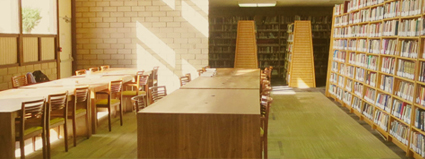
Master of Arts in Teaching (Early Childhood / Childhood Education) Course Descriptions
Notice of Program Availability
Please note that Olivet School of Language and Education is not offering any programs at the moment.
Visit OSLE

Class visits provide a glimpse into academic life at Olivet. Undergraduate volunteers can answer questions...
E-Campus

eCampus offers a secure, pers-onalized gateway to a rich variety of information and se-rvices across the campus.
Apply to OSLE
This easy online application is offered to students wanting to apply electronically.





